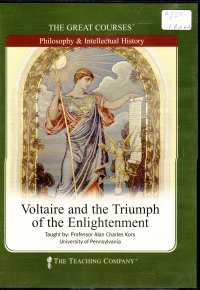 I took a break in the Charlton Heston-narrated cassettes on philosophers to listen to this Teaching Company/Great Courses series on French author Voltaire. Although I had read Candide–my beautiful wife and I took turns reading aloud from it during our courtship–I was not that familiar with him. This course certainly set me a-right. Apparently, he was the biggest European author/thinker of the 18th century, although it might be a touch exaggerated since it is a course on Voltaire, and the course slant tends to be a little homer if you know what I mean.
I took a break in the Charlton Heston-narrated cassettes on philosophers to listen to this Teaching Company/Great Courses series on French author Voltaire. Although I had read Candide–my beautiful wife and I took turns reading aloud from it during our courtship–I was not that familiar with him. This course certainly set me a-right. Apparently, he was the biggest European author/thinker of the 18th century, although it might be a touch exaggerated since it is a course on Voltaire, and the course slant tends to be a little homer if you know what I mean.
The lectures include:
- “The Patriarch”–An Overview
- The Education of a Philosophe
- Philosophical Letters, Part I
- Philosophical Letters, Part II
- The Years at Cirey
- From Optimism to Humanism
- Voltaire and the Philosophical Tale
- Voltaire and God
- Voltaire at Ferney
- Voltaire and History
- Voltaire and Toleration
- Apotheosis
It definitely gives a pretty good survey of his writing, his life, and his times. The strongest parts are, again, the biographical stretches and the specific works in the beginning. When we get to the broad summary Voltaire and lectures on the back half, it moves away from citing individual works and more exploring themes with little support in the actual texts.
But, still, I already knew my Voltaire from my Voltron, and should I fall into any trivia nights in the near future (unlikely), I will surely remember that he wrote a long poem on the Lisbon earthquake and that he wrote the Dictionnaire Philosophique. However, as time goes by, I will likely confuse that with Bierce’s The Devil’s Dictionary. Except one is titled in French, although the obvious might not help me. Fortunately, the deadliest plague ever!!!1 has curtailed trivia nights. That, and in approximately eighteen minutes, I will misremember Voltaire’s birth name as Martin L’Aday and subsequently “remember” that Voltaire is French for meatloaf, which will be disputed the next time my beautiful and French-speaking wife serves her beloved meat casserole.
Also, when I was at Hooked on Books a week and a half ago, I mentioned looking for some Leibniz. Because this course says Voltaire started out really digging the philosophical optimism by argument Leibniz offered and then turned against it after the Lisbon earthquake and the death of Voltaire’s mortal beloved. So I’m interested in acquiring some Leibniz. Not necessarily reading it–heaven knows I have many, many fine primary texts that I’m saving for retirement–but to have just in case. As I’m going to ABC Books this morning, perhaps I will luck out.
I get a little money if you click here and buy:



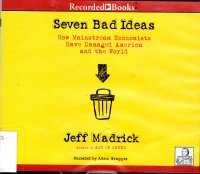 I had hoped that this would be an antedote or rebuttal of
I had hoped that this would be an antedote or rebuttal of 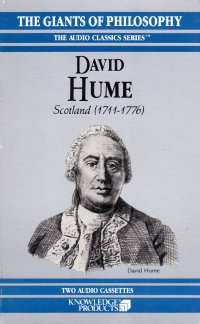 All right, all right, all right–it’s actually been a couple of weeks since I finished listening to this short, two-cassette overview of David Hume’s life and thought. This is from the Giants of Philosophy series as were
All right, all right, all right–it’s actually been a couple of weeks since I finished listening to this short, two-cassette overview of David Hume’s life and thought. This is from the Giants of Philosophy series as were  After listening the Charlton Heston narrating
After listening the Charlton Heston narrating  I listened to these lectures, er, audio books, out of order–I listened to
I listened to these lectures, er, audio books, out of order–I listened to 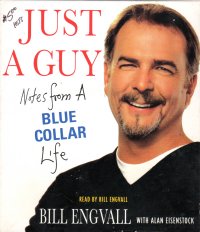 You know, I first heard about Bill Engvalls in the middle 1990s, when my girlfriend referred to him as the guy who says, “Here’s your sign.” The Blue Collar Comedy Tour was, what, almost twenty years ago? And this book is from fourteen years ago, so it’s not fresh and new. It’s the story of Bill Engvall’s life up until that point, from his childhood in Winslow, Arizona, and Texas to his marriage and his start and climb into comedy.
You know, I first heard about Bill Engvalls in the middle 1990s, when my girlfriend referred to him as the guy who says, “Here’s your sign.” The Blue Collar Comedy Tour was, what, almost twenty years ago? And this book is from fourteen years ago, so it’s not fresh and new. It’s the story of Bill Engvall’s life up until that point, from his childhood in Winslow, Arizona, and Texas to his marriage and his start and climb into comedy.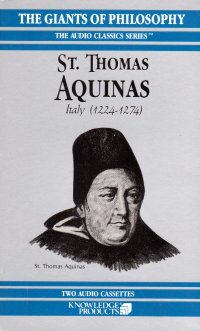 Charlton Heston reads this one, as he did
Charlton Heston reads this one, as he did  I actually started listening to this pair of audiocassettes pretty soon after listening to
I actually started listening to this pair of audiocassettes pretty soon after listening to 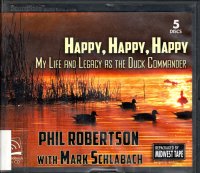 Taking a break from the audio courses, I picked up this set of CDs to listen to in the few times I’m in the car alone for any length of time these days. As it’s summer, I’m not spending half of my car time going to pick up or coming back from dropping off a boy–I generally have one or more with me. So it took me a while to get through this set of 5 CDs even though it only runs about five hours. In the other seasons, I can easily listen to five hours of lectures/audio books a week.
Taking a break from the audio courses, I picked up this set of CDs to listen to in the few times I’m in the car alone for any length of time these days. As it’s summer, I’m not spending half of my car time going to pick up or coming back from dropping off a boy–I generally have one or more with me. So it took me a while to get through this set of 5 CDs even though it only runs about five hours. In the other seasons, I can easily listen to five hours of lectures/audio books a week.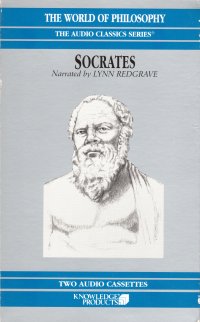 This is not a Teaching Company/The Great Courses production (or even Modern Scholar). It’s a mid-1990s Knowledge Products two cassette set that I bought
This is not a Teaching Company/The Great Courses production (or even Modern Scholar). It’s a mid-1990s Knowledge Products two cassette set that I bought 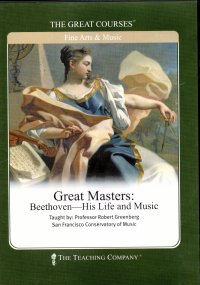 As you might recall, gentle reader, I have listened to a couple of other lecture sets in the musical Great Masters series, most notably
As you might recall, gentle reader, I have listened to a couple of other lecture sets in the musical Great Masters series, most notably 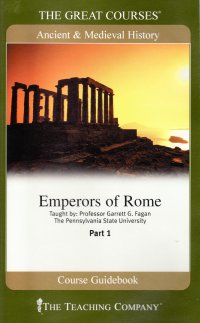 After
After 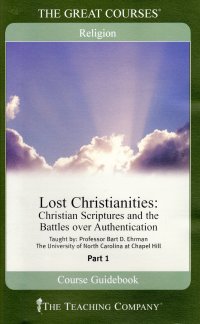 I listened to Professor Ehrman’s
I listened to Professor Ehrman’s  As
As 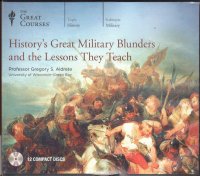 I borrowed this set of lectures from the library because I was getting bogged down in the Buddhism lecture series I popped in to break up the Great Masters of music biographies I’d been listening to (and which I’ll be listening too again, and more, as I received others in the line for Valentine’s Day and for my birthday last month).
I borrowed this set of lectures from the library because I was getting bogged down in the Buddhism lecture series I popped in to break up the Great Masters of music biographies I’d been listening to (and which I’ll be listening too again, and more, as I received others in the line for Valentine’s Day and for my birthday last month).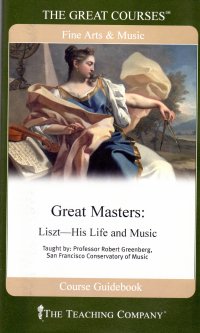 After listening to the
After listening to the 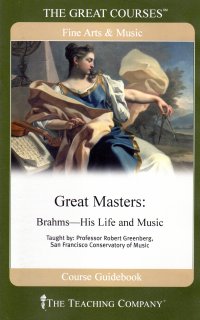 As you might remember, gentle reader, the stack of Teaching Company Great Courses I bought
As you might remember, gentle reader, the stack of Teaching Company Great Courses I bought  I have often said that I don’t really care for the Teaching Company courses that are in my disciplines–English and Philosophy–but this one was an exception. It covers, well, the development of the novel in England and talks about its themes and whatnot from the 1700s to roughly World War II with the death of the Modernists.
I have often said that I don’t really care for the Teaching Company courses that are in my disciplines–English and Philosophy–but this one was an exception. It covers, well, the development of the novel in England and talks about its themes and whatnot from the 1700s to roughly World War II with the death of the Modernists.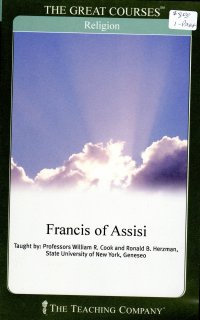 This is another one of the turn-of-the-century six hour lectures that I bought
This is another one of the turn-of-the-century six hour lectures that I bought 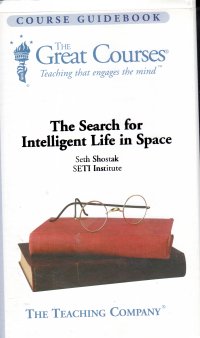 Okay, now this was a fun course to listen to. I was a little concerned that it might be a bit thin on topic matter, as the SETI program itself would be a rather narrow topic–merely talking about analyzing radio signals from space would make for a long six hours.
Okay, now this was a fun course to listen to. I was a little concerned that it might be a bit thin on topic matter, as the SETI program itself would be a rather narrow topic–merely talking about analyzing radio signals from space would make for a long six hours.